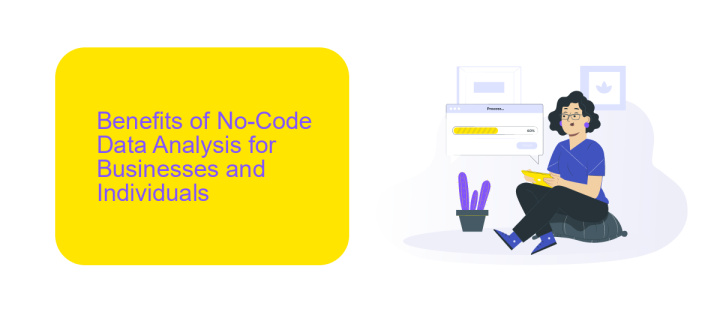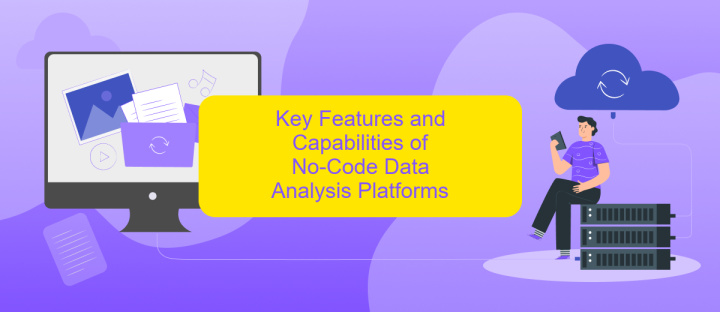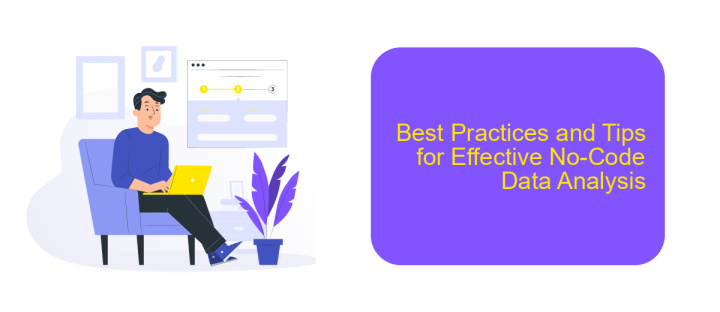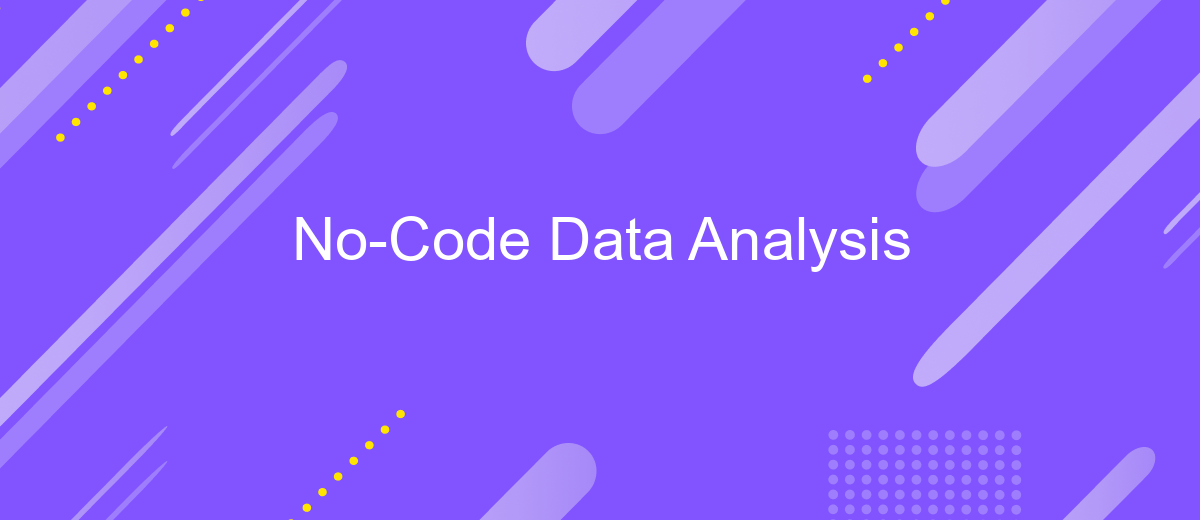No-Code Data Analysis
In today's fast-paced digital world, the demand for quick and efficient data analysis has never been higher. No-code data analysis tools are revolutionizing the way businesses and individuals handle data, enabling even those without technical expertise to extract valuable insights. This article explores the benefits, applications, and future potential of no-code data analysis, making data-driven decision-making accessible to all.
Introduction: Understanding No-Code Data Analysis
No-Code Data Analysis is revolutionizing the way businesses handle and interpret their data. By eliminating the need for traditional coding skills, this approach makes data analysis accessible to a broader audience, including those without a technical background. This democratization of data can lead to more informed decision-making and enhanced productivity across various sectors.
- Ease of use: User-friendly interfaces simplify complex data tasks.
- Cost-effective: Reduces the need for specialized personnel.
- Speed: Accelerates the data analysis process.
- Integration: Seamlessly connects with various data sources and tools.
Tools like ApiX-Drive facilitate the integration of multiple data sources without any coding. This service allows users to automate data flows between applications, making it easier to gather and analyze data from diverse platforms. By leveraging no-code solutions, businesses can focus on extracting valuable insights rather than getting bogged down by technical complexities.
Benefits of No-Code Data Analysis for Businesses and Individuals

No-code data analysis empowers businesses and individuals by eliminating the need for specialized programming skills. This democratization of data access allows for faster decision-making, as users can quickly generate insights without waiting for IT support. For businesses, this means increased agility and the ability to respond to market changes more rapidly. Individuals benefit from the ability to independently explore data, enhancing their personal productivity and professional growth.
Furthermore, no-code tools often come with user-friendly interfaces and pre-built integrations, making it easier to connect various data sources. For instance, services like ApiX-Drive facilitate seamless integration between different applications, enabling users to automate data workflows and save valuable time. This level of accessibility and automation not only reduces operational costs but also fosters a culture of data-driven decision-making across the organization. By leveraging no-code solutions, both businesses and individuals can unlock the full potential of their data without the steep learning curve associated with traditional programming.
Key Features and Capabilities of No-Code Data Analysis Platforms

No-code data analysis platforms are revolutionizing the way businesses handle data, making it accessible to non-technical users. These tools allow users to perform complex data analysis tasks without writing a single line of code, democratizing data insights across organizations.
- Drag-and-Drop Interface: Intuitive interfaces enable users to manipulate data visually, making it easy to perform tasks such as filtering, sorting, and aggregating data.
- Pre-built Templates: Ready-made templates for common data analysis scenarios help users get started quickly and ensure best practices are followed.
- Integration Capabilities: Seamless integration with various data sources, including databases, cloud storage, and APIs, is crucial. Tools like ApiX-Drive facilitate these integrations, allowing users to connect different data sources effortlessly.
- Automated Reporting: Automated report generation and scheduling ensure that stakeholders receive timely insights without manual intervention.
- Collaboration Features: Real-time collaboration tools enable teams to work together on data analysis projects, enhancing productivity and decision-making.
These key features and capabilities make no-code data analysis platforms indispensable for modern businesses. By lowering the barrier to entry, they empower a broader range of users to harness the power of data, driving better business outcomes.
Best Practices and Tips for Effective No-Code Data Analysis

To achieve effective no-code data analysis, it's crucial to start with a clear understanding of your objectives. Define the questions you want to answer and the metrics you need to track. This will guide your choice of tools and data sources.
Next, ensure that your data is clean and well-organized. Inaccurate or incomplete data can lead to misleading results. Use no-code tools to automate data cleaning processes, saving time and reducing errors.
- Choose the right no-code platform that aligns with your needs.
- Leverage integrations to streamline data collection and analysis.
- Regularly update and validate your data sources.
- Utilize visualizations to make data insights more accessible.
For seamless integrations, consider using services like ApiX-Drive, which allows you to connect various apps without coding. This can enhance your data workflow and ensure that all your data sources are synchronized. By following these best practices, you can maximize the effectiveness of your no-code data analysis efforts.
- Automate the work of an online store or landing
- Empower through integration
- Don't spend money on programmers and integrators
- Save time by automating routine tasks
Future Trends and Innovations in No-Code Data Analysis
The future of no-code data analysis is poised for significant growth, driven by advancements in artificial intelligence and machine learning. These technologies are making it easier for non-technical users to perform complex data analysis tasks without writing a single line of code. As AI and ML algorithms become more sophisticated, we can expect no-code platforms to offer more advanced predictive analytics and automated insights, empowering users to make data-driven decisions with greater speed and accuracy.
Another promising trend is the integration capabilities of no-code platforms. Services like ApiX-Drive are revolutionizing how users connect different data sources and applications. By offering seamless integration and automation, ApiX-Drive enables users to streamline their workflows and ensure that data from various platforms is synchronized and up-to-date. This not only saves time but also reduces the risk of errors, making data analysis more reliable and efficient. As no-code platforms continue to evolve, we can anticipate even more innovative tools and services that will further democratize data analysis.
FAQ
What is No-Code Data Analysis?
Who can benefit from No-Code Data Analysis tools?
How do No-Code Data Analysis tools integrate with other software?
What types of data can be analyzed using No-Code Data Analysis tools?
Are No-Code Data Analysis tools secure?
Apix-Drive is a universal tool that will quickly streamline any workflow, freeing you from routine and possible financial losses. Try ApiX-Drive in action and see how useful it is for you personally. In the meantime, when you are setting up connections between systems, think about where you are investing your free time, because now you will have much more of it.


